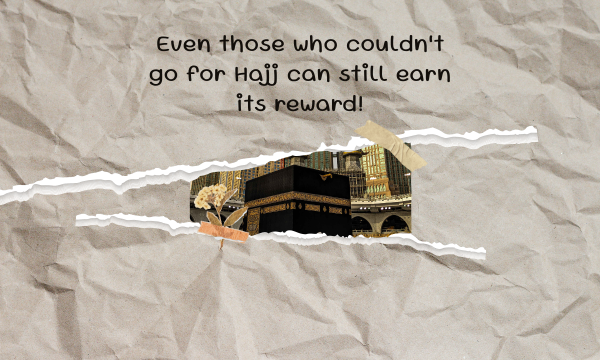I was feeling run down and low on energy for several days. My loved ones suggested I get a blood work and a general medical assessment. I don’t like labs, doctors nor medicines, but there was no escape from the loving reminders (and sometimes unrelenting threats from family). So, I finally got my basic tests done. With one hurdle crossed, I kept procrastinating getting a doctor’s appointment. I was hoping everyone would forget, but I looked too pulled down and there was no running away.
I finally went to a doctor recommended by an acquaintance whom I could trust. As I walked into the small clinic, I was relieved to see a middle-aged, bearded man. I told him about my cold and cough, and then I added that I felt run down and was under stress. I thought it would help him assess my condition better if I gave a little more information. I told him managing our children without my husband’s presence was taking its toll me. He asked if my husband was travelling or was away for work and visited every month.
I decided to open up a bit further as I did feel comfortable talking it out and shared that it had been three years since my husband had been home. He thought it was marital problems. I felt comfortable enough by now so I disclosed, “He’s incarcerated, a case of enforced disappearance”.
He went silent, trying to balance his human emotion with his professional decorum. He lent words of comfort and asked “Have you consulted an aalim (scholar)?
” No,” I replied.
“Then do so,” he responded.
I asked him if he could recommend any and he mentioned a very well-known scholar in Karachi. He promised to pass his number on to me. He then jotted down my medicines and just as he reached the end of the paper, he said “I’m prescribing an anti-depressant for you.”
If my stress wasn’t enough, this was a definite blow. I always thought I was spiritually strong and mentally resilient and such medication was for the emotionally weak.
“I am not comfortable with this prescription” I said as I regained my composure. “I don’t want to become dependent on them.”
“You won’t. Just take them for some time. They’ll help you feel more positive.” He seemed so sure.
“May I consult the aalim you suggested regarding the medicines?” I asked him again.
“They do not subscribe to such views. He will tell you not to take them,” the doctor candidly replied.
“I’m not comfortable either.” I carried on with the conversation.
“I am giving you a sincere advice. In Sha’Allah it’ll do you good.” He went ahead and firmly closed the dialogue.
I took the prescription, paid my fee, thanked the doctor and cried my way home.
I said to Allah (عَزَّوَجَلَّ), “I don’t want to come to this.”
After consulting my mother, I decided to do istikhara. I waited for the aalim’s number and got through to him the next day. I was hoping for some miracle advice. As I spoke to the scholar and disclosed my situation, he suddenly turned cold, and said he would call me back. He never did. I knew Allah (عَزَّوَجَلَّ) shut this door for a reason. He wanted me to walk through another one. I just didn’t know which one.
As I scrambled with my disappointment with myself, somewhere from my subconscious I recalled a hadith I had read some days back. It was narrated that Ubayy ibn Ka‘b (رَضِيَ ٱللَّٰهُ عَنْهُ) said:
“O Messenger of Allah, I send a great deal of blessings upon you; how much of my du’a should be sending blessings upon you? He said: “Whatever you wish.” I said: One quarter? He said: “Whatever you wish, and if you do more, that will be better for you.” I said: One half? He said: “Whatever you wish and if you do more, that will be better for you.” I said: Two thirds? He said: “Whatever you wish and if you do more, that will be better for you.” I said: I will make all of my du’a for you. He said: “Then your concerns will be taken care of and your sins will be forgiven.”
(At-Tirmidhi (2457)
Classed as hasan by al-Albaani in Sunan at-Tirmidhi)
And then I said to myself, “This is exactly what I want. I want my concerns to be taken care of. I feel tired carrying their weight. O Allah, the doctor made a promise. He said the medicine was going to make me feel better. It was going to be good for me and take my worries away. And O Allah, your Prophet SAW has made a promise. And this promise is upon You. O Allah who is truer in His promise than You? O Allah! Bear witness that I have chosen to take your promise as my remedy and you never turn back on Your promise.”
So I took the prescription sheet, and neatly cut off the bottom part where the anti-depressant was written and just handed the top bit with the rest of the supplements to my father-in-law who was going to purchase them for me.
I took my cough syrup and supplements, as for the anti depressant …
From that day, as soon as I opened my eyes in the morning, even as I lazed in bed, I began to recite the durood. And throughout the day, I recited as much durood as and when I remembered.
Each day I reminded Allah (عَزَّوَجَلَّ) of His promise and my expectation of its fulfillment. But the fact is that He needed no reminders; rather I was reminding myself and reassuring my heart that if I do my part, Allah (عَزَّوَجَلَّ) would fulfil His.
It has been a few months since I have been relying on Allah’ (عَزَّوَجَلَّ) promise as my provision, and by Allah, I do not know how but my stress has slowly dissipated. I have had people tell me I look better and I even sound better. Previously I seemed to have been sucked into a whirlpool and suddenly I feel lighter. I was so entangled in my thoughts and concerns, I could not see anything. SubhanAllah, as I began to make the durood my companion, I started seeing so much more in my life that was worthy of seeing and being grateful for, for turning my attention to. I slowly began to see my worries become smaller. My concerns were taken care of with His true promise.
I remember how my heart sank when I was prescribed the anti-depressant, but Allah (عَزَّوَجَلَّ) brought me to that point so I could come to the crossroad where I could either choose the doctor’s prescription or His’, the doctors promise or His. I chose Allah (عَزَّوَجَلَّ)’s prescription, Allah’s promise.
Allah (عَزَّوَجَلَّ) says in the Qur’an:
وَعْدَ ٱللَّهِ ۖ لَا يُخْلِفُ ٱللَّهُ وَعْدَهُۥ وَلَـٰكِنَّ أَكْثَرَ ٱلنَّاسِ لَا يَعْلَمُونَ
“It is the promise of Allah. Allah does not fail in His promise, but most of the people do not know.”
[Surah Ar-Rum:6]












